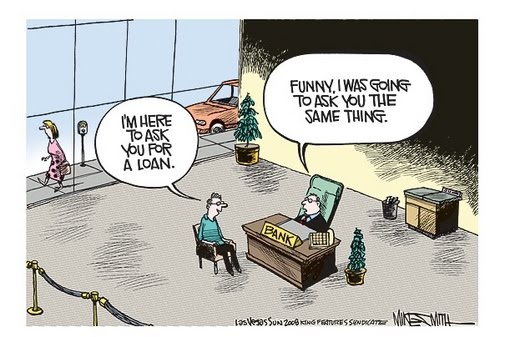The battle being waged by bondholders over access to the loan files underlying their investments was brought into the national spotlight earlier this week, when the Federal Housing Finance Agency (FHFA), the regulator in charge of overseeing Fannie Mae and Freddie Mac, issued 64 subpoenas seeking documents related to the mortgage-backed securities (MBS) in which Freddie and Fannie had invested. The FHFA has been in charge of overseeing Freddie and Fannie since they were placed into conservatorship in 2008.
Freddie and Fannie are two of the largest investors in privately issued bonds–those secured by subprime and Alt-A loans that were often originated by the mortgage arms of Wall St. firms and then packaged and sold by those same firms to investors–and held nearly $255 billion of these securities as of the end of May. The FHFA said Monday that it is seeking to determine whether issuers of these so-called “private label” MBS misled Freddie and Fannie into making the investments, which have performed abysmally so far, and are expected to result in another $46 billion in unrealized losses to the Government Sponsored Entities (GSE).
Though the FHFA has not disclosed the targets of its subpoenas, the top issuers of private label MBS include familiar names such as Countrywide and Merrill Lynch (now part of BofA), Bear Stearns and Washington Mutual (now part of JP Morgan Chase), Deutsche Bank and Morgan Stanley. David Reilly of the Wall Street Journal has written an article urging banks to come forward and disclose whether they have received subpoenas from the FHFA, but I’m not holding my breath.
The FHFA issued a press release on Monday regarding the subpoenas (available here). The statement I found most interesting in the release discusses that, before and after conservatorship, the GSEs had been attempting to acquire loan files to assess their rights and determine whether there were misrepresentations and/or breaches of representations and warranties by the issuers of the private label MBS, but that, “difficulty in obtaining the loan documents has presented a challenge to the [GSEs’] efforts. FHFA has therefore issued these subpoenas for various loan files and transaction documents pertaining to loans securing the [private label MBS] to trustees and servicers controlling or holding that documentation.”
The FHFA’s Acting Director, Edward DeMarco, is then quoted as saying ““FHFA is taking this action consistent with our responsibilities as Conservator of each Enterprise. By obtaining these documents we can assess whether contractual violations or other breaches have taken place leading to losses for the Enterprises and thus taxpayers. If so, we will then make decisions regarding appropriate actions.” Sounds like these subpoenas are just the precursor to additional legal action.
The fact that servicers and trustees have been stonewalling even these powerful agencies on loan files should come as no surprise based on the legal battles private investors have had to wage thus far to force banks to produce these documents. And yet, I’m still amazed by the bald intransigence displayed by these financial institutions. After all, they generally have clear contractual obligations requiring them to give investors access to the files (which describe the very assets backing the securities), not to mention the implicit discovery rights these private institutions would have should the dispute wind up in court, as it has in MBIA v. Countrywide and scores of other investor suits.

At this point, it should be clear to everyone–servicers and investors alike–that the loan files will have to be produced eventually, so the only purpose I can fathom for the banks’ obduracy is delay. The loan files should, as I’ve said in the past, reveal the depths of mortgage originator depravity, demonstrating convincingly that the loans never should have been issued in the first place. This, in turn, will force banks to immediately reserve for potential losses associated with buying back these defective mortgages. Perhaps banks are hoping that they can ward off this inevitability long enough to spread their losses out over several years, thereby weathering the storm caused (in part) by their irresponsible lending practices. But certainly the FHFA’s announcement will make that more difficult, as the FHFA’s inherent authority to subpoena these documents (stemming from the Housing and Economic Recovery Act of 2008) should compel disclosure without the need for litigation, and potentially provide sufficient evidence of repurchase obligations to compel the banks to reserve right away. For more on this issue, see the fascinating recent guest post by Manal Mehta on The Subprime Shakeout regarding the SEC’s investigation into banks’ processes for allocating loss reserves.
Meanwhile, the investor lawsuits continue to rain down on banks, with suits by the Charles Schwab Corp. against Merrill Lynch and UBS, by the Oregon Public Employee Retirement Fund against Countrywide, and by Cambridge Place Investment Management against Goldman Sachs, Citigroup and dozens of other banks and brokerages being announced this week. If the congealing investor syndicate was looking for political cover before staging a full frontal attack on banks, this should provide ample protection. Much more to follow on these and other developments in the coming days…


